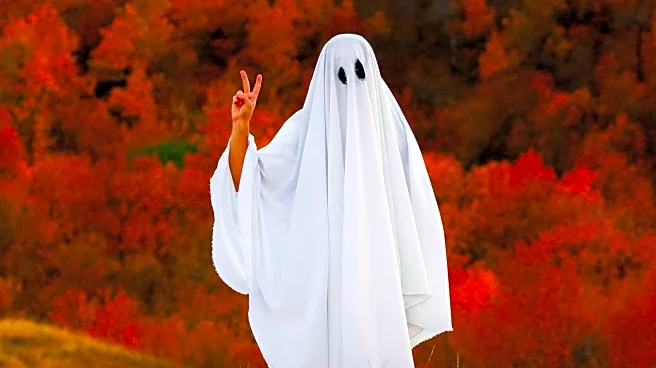What's Happening?
The word 'ghost' has undergone significant transformations in meaning and usage over centuries. Originally derived from the Old English 'gast,' it referred to 'breath' or 'life' rather than the spectral entities associated with Halloween. Over time, the word evolved,
influenced by cultural shifts and linguistic changes, including the addition of a silent 'h' by Flemish typesetters. The concept of ghosts has been present since ancient times, with references in texts like the Epic of Gilgamesh and Homer's Odyssey. The 19th century saw a surge in spiritualism, with ghosts becoming central to Victorian literature and séances. Today, the word 'ghost' continues to permeate modern language, influencing idioms and slang, such as 'ghosting' in dating contexts.
Why It's Important?
Understanding the etymology of 'ghost' provides insight into how language evolves and reflects cultural beliefs. The transformation of 'ghost' from a term denoting life to one associated with the supernatural illustrates how societal attitudes towards death and the afterlife have shifted. This linguistic journey highlights the interplay between language and culture, showing how words can adapt to new meanings over time. The continued use of 'ghost' in modern slang and idioms underscores its enduring relevance, demonstrating how historical concepts can influence contemporary communication.
Beyond the Headlines
The evolution of the word 'ghost' also reflects broader cultural and historical shifts, such as the rise of spiritualism in the 19th century and the impact of horror literature and films. These developments have shaped public perceptions of ghosts, contributing to their portrayal as both malevolent and benign entities in popular culture. The word's adaptability in language highlights the dynamic nature of linguistic evolution, where words can acquire new meanings and connotations based on societal changes.
















